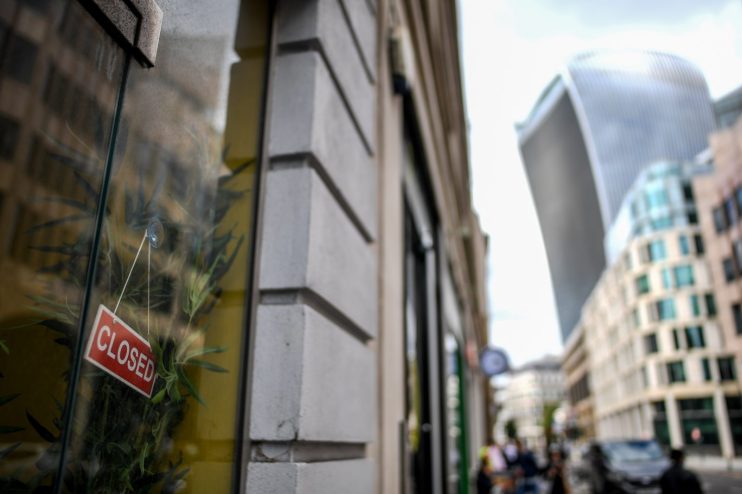FTSE 100 slips as no-deal Brexit comes into focus

The FTSE 100 opened lower as investors digested the prospect of a tighter lockdown in London and a no-deal exit from the EU transition period.
London’s blue-chip index fell 0.1 per cent to 6,594 points in early trading. The FTSE 250 of slightly smaller firms dropped 0.2 per cent.
The pound – which has been on a wild ride amid Brexit negotiations – was down 0.3 per cent this morning to $1.325 after rising last week as investors hoped a trade deal could be struck.
Stocks were mixed in Asia overnight, with China’s SSE Composite index slipping 0.8 per cent. Japan’s Nikkei 225 fell 0.4 per cent but Hong Kong’s Hang Seng rose 0.4 per cent.
In the European markets, investors welcomed the European Central Bank’s expansion of its asset purchase programme by €500bn.
ECB president said the boost was a reaction to heightened economic uncertainty, despite positive vaccine news.
“Incoming data and our staff projections suggest a more pronounced near-term impact of the pandemic on the economy and a more protracted weakness in inflation than previously envisaged,” she told a news conference.
In the US, markets are still waiting to see whether a stimulus bill can be thrashed out. There have been signs of progress in recent days, with Treasury secretary Steven Mnuchin proposing a package worth more than $900bn.
FTSE 100 fears ‘economic pain’
Prime Minister Boris Johnson appeared to try to ready the country for a no-deal Brexit yesterday. He said there was a “strong possibility” that a trade deal would not be reached.
The UK’s budget watchdog has predicted that a no-deal Brexit could knock two per cent off the economy next year. The prospect – and yet more uncertainty – worries investors greatly.
However, Michael Hewson of CMC Markets said: “There still seems to be some optimism that pragmatism will prevail as the 31st December deadline gets closer, and the realisation slowly dawns of the potential economic damage that could ensue in the days after a no deal outcome.
“An outcome that in the current circumstances would simply heap economic pain on top of economic pain.”